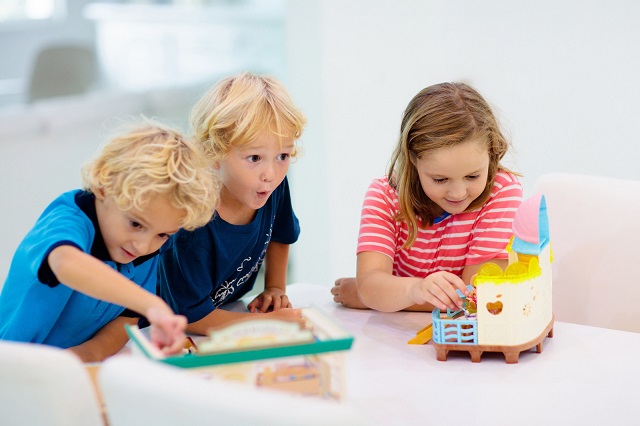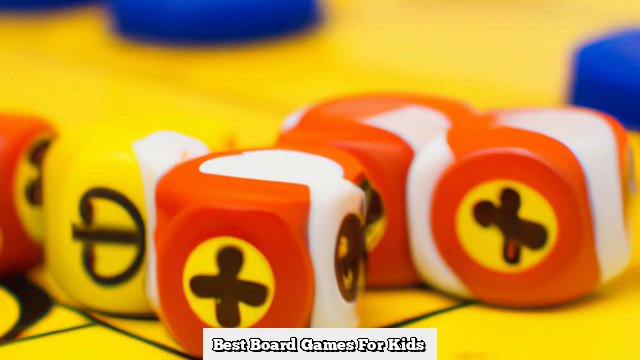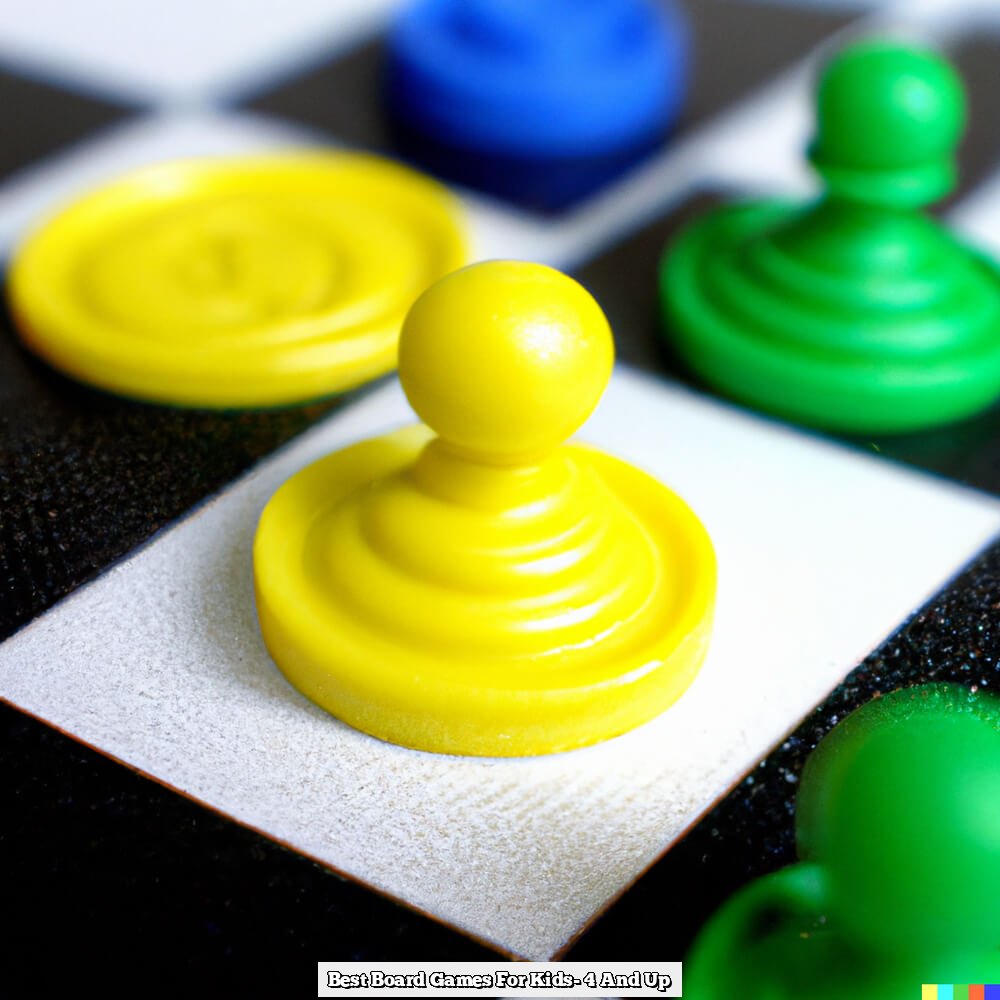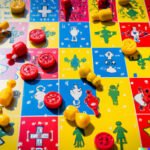
Board games for kids are an excellent way to bring enjoyment and learning to children. Every board game offers a unique adventure, activity or challenge that’s sure to spark plenty of ideas in curious minds. From educational activities to pure fun, board games can help birth imaginative stories and conversations that always end with happy memories and a newfound interest in the value of a group effort.
Board games are designed based on difficulty and appropriate age groups, so it’s important to pick something that your child is likely to succeed at but also keeps her engaged. When exploring board games for kids, it all has to do with matching their skillset with what you think they’ll enjoy most.
It’s great if you can also find a game that provides new experiences for them-such as counting coins or recognizing shapes-that make the game both fun and educational.
There are tons of inspiring ideas when deciding on the best board game for your child’s age range: from classics like Snakes & Ladders, Memory Games or Ludo right up to word puzzles like Scrabble Junior or Brainbox Numbers which can really enhance problem solving skills.
All of these introduce young players to strategy building and problem-solving by using positional play – where pieces are placed tactically around the board (depending on how many players there are) in order to gain an advantage over opponents.
This is especially beneficial as children develop a natural understanding of logic through playing these types of games.
It’s important not just for parents but even teachers too, who might be dealing with lots of children in one group setting – i.e., kindergarten classrooms – to find great ways of introducing board games into their learning program as it helps stimulate creative thinking and promote critical thinking processes while allowing children to engage in friendly competition with each other thus increasing team spirit.
While some may prefer more traditional paper-and-pencil activities such as number puzzles or word searches, playing board games together is an incredibly interactive way for children to bond while also enhancing their cooperation skills; which will ultimately aid them later on down life’s journey when attempting bigger tasks at school or work.
How Board Games Can Enhance Learning for Kids
Board games for kids are an important part of the learning process. Not only can they increase a child’s ability to focus, but they also promote problem-solving skills and creativity. In addition, they provide valuable family time for parents to bond with their children and foster meaningful conversation around the game table.
Board games can help kids understand concepts that may otherwise be hard to master such as number-based games and logic puzzles which encourage the development of math skills. They also promote language development as players talk about their strategies and express their desires while playing together.
Playing board games with your child encourages cooperation by teaching your little one how to work effectively towards a common goal – usually, either reaching a finish line or winning a match against others at the table. This helps children learn about fair play and teamwork from an early age, which will serve them well later in life when it comes down to collaboration in more formal settings.
Furthermore, playing board games has been found to reduce stress levels in members of all age groups so spending some time together over a game may give your kid relief from everyday worries.
Encouraging kids to participate in group activities like these allows them to sharpen their communication skills as they learn how to negotiate within the context of the game’s rules and take turns patiently – both essential skills that will help them in future social experiences both inside and outside school.
Furthermore, since kids must stay engaged during board game sessions,they can develop applied concentration abilities which are beneficial across multiple areas of their lives such as work habits during school or tackling difficult tasks like completing long projects on time without losing focus.
Accordingly, introducing board games into your parenting approach may have positive outcomes for you and your child alike since the actions necessary for mastering any given activity will reinforce crucial physical (rolling dice) mental (making choices quickly) and social (working together under pressure) aptitudes in your youngster while allowing meaningful family interaction between everyone at the table. So don’t forget this form of entertainment next time you are looking for something fun that involves everybody.
Types of Board Games for Different Age Groups
Board games are fun for the whole family, no matter what age. Age-appropriate board games are a great way to stimulate young minds and help them learn basic skills. Board games that promote physical interaction and give practice with language, socialization, and reasoning skills can also provide lots of entertainment for kids.
Toddlers (0-2 years)
For toddlers, board games should be simple enough that they understand the rules quickly but take some time to finish playing, allowing for lots of mental activity. Games like Chutes And Ladders or Candyland have basic game steps which require little thinking but capture a toddler’s short attention span while exercising their critical thinking skills.
How these types of starter board games help build patience as kids wait for others to make a move and help with counting steps along the board from start to finish.
Pre-schoolers (3-5 years)
For pre-school aged children there are a variety of fantastic board games that foster brain power in a very entertaining way without being overwhelming. The National Parenting Center’s recommends Snug As A Bug, Shopping Spree and Most Wanted. Pick these up to introduce children this age to concepts such as matching symbols, taking turns and winning rewards.
Aspiring builders will enjoy building towers together using Laugh & Learn Rhyming Tower Builders. Animal sounds found in activities like Hoot Owl Hullabaloo introduce children to animals most may not have seen in their area yet.
Morning Games For School Age Kids (6 – 12)
Looking for an activity that gets your child ready for the day? Morning Games can combine fun with logic which makes it easier for school age children to gain valuable problem solving skills without feeling overwhelmed by boredom or lack of interest. Choices such as Zoo on The Loose., Fiddlestix Jumbo or Hammerball will test your child’s strategy abilities through pushing pieces around tracks or building structures with limited tool kits.
Popular Board Games for Kids of all Ages
Board games have been around much longer than the average kid may think. For centuries, they have brought families together over a friendly match of strategy and luck. There is no surprise that board games are still popular today and children of all ages find tons of enjoyment from them.
Popular board games for kids come in all shapes and forms, from the classic choices like Monopoly to the more modern picks like Candyland. Here are some of the most popular board game choices for kids:
checkers
Checkers is an easy-to-learn game with a set of rules that is simple yet challenging enough to appeal to children. Players take turns making moves on a grid using their checker pieces until one side has won by either capturing all opponent’s pieces or blocking all possible moves so their own pieces can’t be captured.
Checkers appeals to kids because it’s competitive and nothing beats the feeling of bragging rights from winning the game. This two player game can also be quite interactive as opponents plan out each move carefully while strategizing against their opponent.
Go Fish
Go Fish is a card game that is suitable for young children who lack strategy skills but still want to enjoy a fun competition between friends (or family). It works by having each participant ask another player if they have any cards related to what they do or don’t currently possess in order to gather pairs or sets – either single cards or whole hand counts in this case.
The goal is ultimately collecting as many sets of matches before anyone else does as possible, which does require memory skills as well as basic math understanding. Kids love this game because it’s fast paced and competitive, plus there’s always room for unexpected surprises that create unexpected outcomes for an already exciting experience.
Battleship
Battleship is a classic two-player guessing game where players compete against each other on opposite sides – each trying to sink all opposing ships placed secretly in their opponent’s grid-based ocean before being sunk themselves.
In order to play, each player places an array of “boats” somewhere within the map without their opponents knowing its location prior; using shots fired at random spots – if a hit occurs then that area becomes visible indicating the presence of one ship piece nearby.
This action-filled guessing game often leaves players engaged due to its intense nature – making each turn tense yet exciting. Each victory brings new features such as ship upgrades and boosts, allowing players who succeed longer more means with which to make more successful strikes during gameplay which continually adds onto the thrill factor particularly during prolonged sessions with friends.
Math-Focused Board Games That Kids Enjoy
1. Sum Swamp: This board game takes players on a swampy adventure as they try to get to the other side of the board faster than their opponents. Players must use addition and subtraction skills to move around the board, increase their score, and be the first one across.
2. The Sneaky, Snacky Squirrel Game: Kids take turns being squirrels collecting colored acorns from the game board. They must use spatial reasoning and matching skills while strategically choosing which trees to take acorns from (or risk opponents stealing the precious prize from underneath them).
3. Zingo.: This fast-paced game provides each player with their own individual card to fill in with snap tiles. Players must match images or colors on their card in order to receive points. Zingo. encourages kids to focus and think quickly-a great way for them to brush up on their motor skills while also working on basic math functions.
4. fraction Frenzy: In this fun and colorful board game, kids become familiar with fractions by solving equations, adding fractions together, and “stealing” chips off of another player’s plate when they answer correctly. As an added bonus, players are rewarded for finding totals, conversions, and more as they weave their way around the fraction wheel.
5. Pie Math: A twist on classic math games that adds a delicious twist. In this tasty treat of a game, players must work together in teams as they try to create pies correctly based on clues sent by other players-including measurements like cups, teaspoons, etc.-and decide who will get which ingredient needed for the pie recipe.
Proven Educational Benefits of Board Games for Kids
Board games have been around for centuries and continue to remain a popular form of entertainment. While most people think of board games as a fun activity for the whole family, there are numerous educational benefits that come with playing board games with children.
- Improves Problem Solving Skills
- Enhances Social Interaction
- Develops Strategic Thinking
- Improves Reading Comprehension
- Encourages Math & Numeracy Skills
Playing board games with young children helps build problem-solving skills by encouraging them to learn how to make quick decisions and work out solutions for different situations. The goal of each game is typically different, which allows them to sharpen their strategic thinking by anticipating opponents’ moves, analyzing the possible outcomes of an action, and determining which ones are most likely to result in success.
Through game play, children also increase their skills at communication and social interaction, since they must take turns and conform to cooperative rules when playing together.
Moreover, board games can help improve reading comprehension: many classic board games contain cards with written instructions or even rules that need to be read and followed before playing can begin. Additionally, board games featuring numbers such as dice rolling or card counting help improve numeracy skills in kids ages 5-8 as they practice counting and recognizing basic number patterns.
Board games are not only entertaining but can also bring unsuspected educational benefits in various areas for kids of all ages. Furthermore, it’s beneficial if adults participate in the process too so that children have someone they can rely on for guidance throughout the game play.
With all these advantages to gain from simply spending time together playing, parents will never regret investing their free time into classic board games that provide fun memories and teach invaluable lessons along the way.
Choosing the Right Board Games for Your Kids
The Benefits of Board Games
Board games are a fun and entertaining way for kids to learn a range of skills, including strategy, problem-solving, and critical thinking. Many popular board games today involve social interaction and help promote collaboration between players as they work together to determine how best to win the game. Board games also help young children develop better hand-eye coordination.
They can explore other cultures and even teach basic math and literacy skills. These benefits make board games great ways for parents to engage their children’s minds in stimulating ways.
Types of Board Games For Kids
Board games come in many different varieties that are suitable for any age group; from the very young (such as toddler puzzles) to teenagers (like strategic card or word games). Some classic board games like Monopoly, Clue, The Game of Life, Trouble, and Battleship will entertain older children while simpler board games such as Jenga or Candyland are perfect for younger ones.
There are also more modern board games available that follow themes such as superheroes, space exploration, or fantasy worlds – all helping kids explore their imagination without having to leave their living room.
Rules & Responsibilities
Before your family begins a game night it is important that everyone understand how the game works. Reading the instructions together is a great way to familiarize yourself with the rules so nobody gets left behind during gameplay.
It’s especially important to talk through possible strategies so players can share ideas on how they want to move forward with the game’s goal. Of course it’s essential for parents to encourage good sportsmanship which includes respecting others’ opinions when it comes time for decisions about moves and turns-just another valuable life lesson learned through board gaming.
Fun Family Time With Board Games for Kids
Board games for kids are a great way to bring the family together for fun-filled evenings and days. Young children can have hours of enjoyment playing with their siblings or parents, and these games are an excellent way to teach them about strategy, teamwork, problem-solving, and basic math skills.
In today’s age of digital devices, board games offer something different for kids who might be used to only playing computers and video games. They also provide a unique opportunity for parents to bond with their children in a way that isn’t possible with any other type of activity.
For instance, when playing a board game together, the parent gets to show their knowledge and strategic thinking skills while the child is learning how best to put those skills into action.
The benefit of having physical pieces is that it invites everyone at the table to think critically and strategize together instead of just following what they see on the screen. This encourages things like teamwork and critical thinking which set kids up well for life outside of gaming. Board games also provide multiple ways to build collaborative decision making as players may need to talk through decisions, come up with ideas together or even make trades in some games.
From simple matching puzzles to complex strategy titles there will be a board game out there perfect for each member of the family regardless of age or interest level. Parents can also use these games as tools for teaching important concepts like fair turns, good sportsmanship, taking risks while still managing risk levels, creativity when it comes to solving problems as well as equal parts patience and flexibility when working within certain rulesets.
Board games help families create memorable experiences within the walls of their living room instead of solely depending on devices alone; something all parents should strive towards achieving more often.




